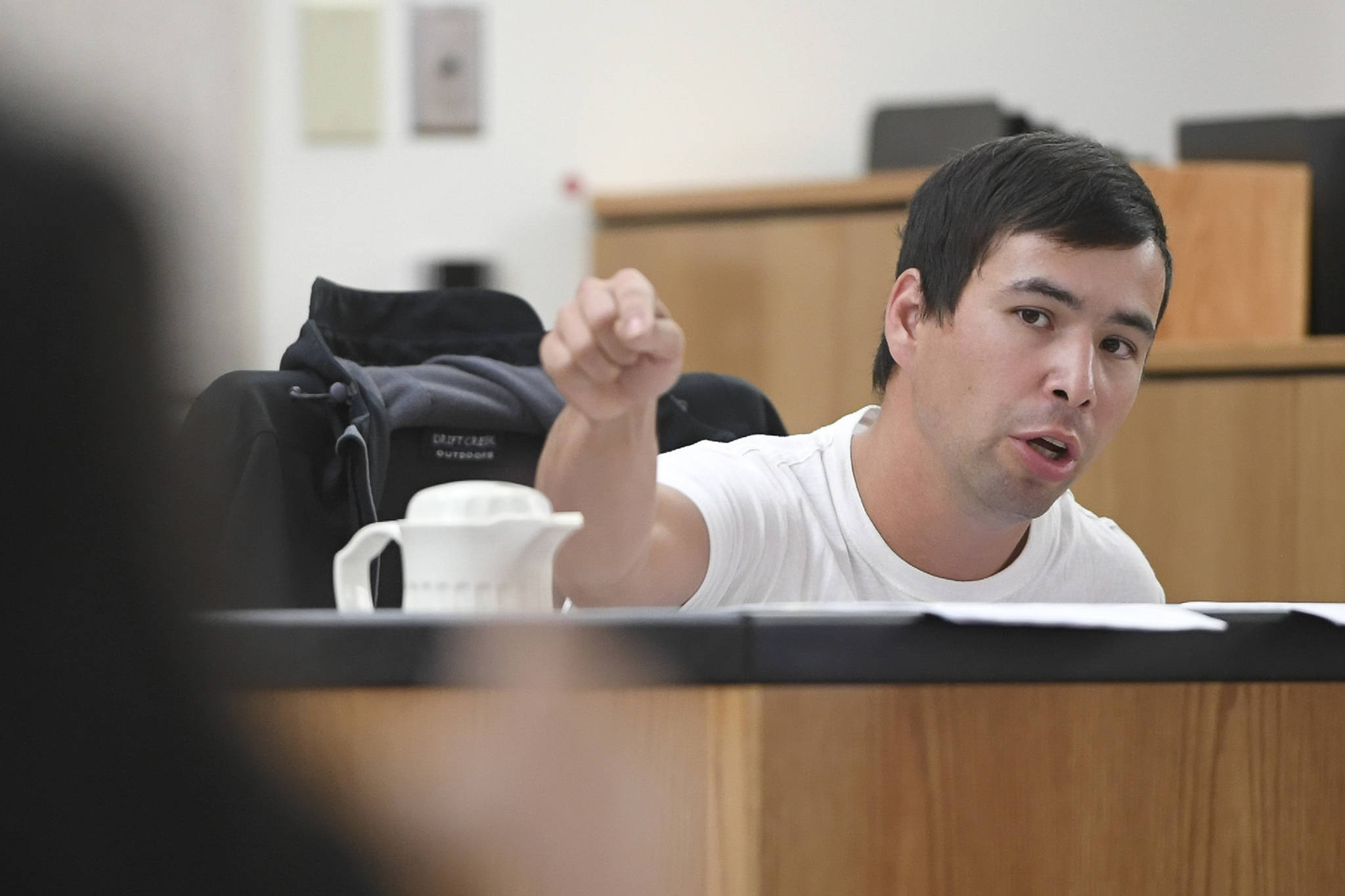The trial for a 2015 double murder continued with contentious cross-examination Monday as the defense sought to discredit a key witness.
Defense attorney Natasha Norris went in fine detail over the timeline and actions leading up to and following an interaction where defendant Laron Carlton Graham, 42, allegedly gave another inmate a note confessing to the murder of Elizabeth Tonsmeire, 34, and Robby Meireis, 36.
“It was your decision to subpoena me and I’m here,” the former inmate James LeBlanc-Tweedy said Monday morning. “There are plenty of other things I’d rather be doing with this time, like work.”
LeBlanc-Tweedy’s testimony was shot through with interruptions as Norris attempted to clarify his statements and he attempted to articulate his points for at least three hours of cross-examination.
“To be nitpicky about the situation is really unjust and unfair,” LeBlanc-Tweedy said to Norris as he took issue with her line of questioning.
The son of a probation officer at LCCC, LeBlanc-Tweedy was separated from the general population of inmates due to the perceived risk to his safety.
“Nobody likes me in the jail because my mom’s a PO,” LeBlanc-Tweedy said.
LeBlanc-Tweedy and Graham were placed in adjacent cells in the maximum security section of Lemon Creek Correctional Center during their incarceration. They quickly hit it off.
“There is no law saying there has to be a long extended period of time of communicating to be someone’s friend,” LeBlanc-Tweedy said during cross-examination.
Norris proceeded during cross-examination to attack the details surrounding the alleged confession that Graham wrote and LeBlanc-Tweedy read. LeBlanc-Tweedy said that he read the note where Graham confessed to killing Tonsmeire and Meireis, but he returned it to Graham, who destroyed it.
“I was not asking you about the Sunday funnies, I was asking you why you didn’t save the note where my client confessed to killing two people,” Norris asked during the cross-examination.
LeBlanc-Tweedy said he wrote down as much as he could remember on a note of his own, which he eventually showed to the police. Before that, he filed requests with the correctional officers to speak to his attorney, and later, his mother.
“I was pretty much sitting there traumatized,” LeBlanc-Tweedy said, recalling receiving the note. “I was yelling into the mic to get help in my situation”
However, according to Norris, records of his request to speak to his mother are missing. The next requests after asking to speak to his attorney are trying to retrieve a pair of shoes he ordered.
“Instead of trying to twist words, there is footage, and that should speak for itself,” LeBlanc-Tweedy said.
LeBlanc-Tweedy, with his mother’s help, eventually secured an interview with Juneau Police Department Detective Matt DuBois. LeBlanc-Tweedy’s note of Graham’s alleged confession note was admitted in court as evidence, which Norris questioned, saying it had inconsistencies and is not reliable.
“You are putting words in my mouth,” LeBlanc-Tweedy said. “I am saying, I gave the police this document.”
Norris also questioned LeBlanc-Tweedy’s motives for coming forth with this evidence, arguing that he was angling for a reduced sentence in an open criminal case against him by volunteering information.
“It is frowned upon to sit there and tell on another inmate,” LeBlanc-Tweedy, defending his attempts in prison to lie about informing on Graham to other inmates. LeBlanc-Tweedy also argued that with his plea deal, he was ineligible for further time reduced, and that his decision to go to the authorities with the information about the murder was purely conscience-based.
“Getting out of jail,” said Norris, voicing her own opinion of why he would go to the police with the information, real or fabricated. “Which is why you would do this.”
• Contact reporter Michael S. Lockett at 523-2271 or mlockett@juneauempire.com.

